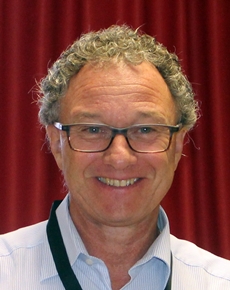
President of AIESEP (Association Internationale des Écoles Supérieures d’Éducation Physique – International Association for Physical Education in Higher Education )
A model to guide PE teachers to become changing agents
17 November, 10h55-11h25
School is definitely important for a society. In each country, ambitious missions are entrusted to the education system to prepare youths for the future. Measuring learning outcomes is a common approach to determine the students’ capabilities in a way to fine-tune the education policies. With PISA surveys, OECD measures 15-year-olds’ ability to use their reading, mathematics and science knowledge and skills to meet real-life challenges (Schleicher, 2019). Such approach underlines that schools and teachers should propose an authentic instruction (Newmann & Wehlage, 1993) promoting a connectedness between what is taught/assessed and the out-of-school world. Since the beginning of the 21st century, physical education (PE) teachers have been increasingly identified as the cornerstones of the promotion of a healthy and active lifestyle at school. As for other disciplines, it would be logical that experiences students accumulate during their schooling would contribute to concretely improve their habits once they leave the school environment. PE should be integrated into the international comparisons. On that perspective, PE teachers should implement teaching approaches aiming to increase societal transfer and accountability (Cloes, 2017). If the literature offers a wide variety of resources from which PE teachers can draw inspiration to reach these goals, it would be interesting to propose them a model designed to organize their action on the field. This presentation will describe such model based on four integrated levels illustrating the stages where PE teachers intervene at school.
References
Cloes, M. (2017). Preparing physically educated citizens in physical education. Expectations and practices. Retos, 31, 245-251. Available http://recyt.fecyt.es/index.php/retos/article/view/53497/32304
Newmann, F.M. & Wehlage, G.G. (1993). Authentic Learning. Five Standards of Authentic
Instruction. Educational Leadership, 50(7), 8-12.
Schleicher, A. (2019). PISA 2018. Insights and Interpretations. OECD. Available on https://www.oecd.org/pisa/PISA%202018%20Insights%20and%20Interpretations%20FINAL%20PDF.pdf
Bio:
Prof. Dr hon. Marc Cloes pursued his career in the Department of Sport and Rehabilitation Sciences at the University of Liege (Belgium). He was in charge of the physical education teacher education programme. His research interests focused directly on sport pedagogy and referred to the integrative model of the teaching-learning process. That model advocates an ecological approach to the educational relationship. A great transversality of the practice contexts of physical and sporting activities characterizes his work (http://orbi.ulg.ac.be/ph-search?uid=U012570). Since the beginning of the 21st century, promoting an active and healthy lifestyle became one of his priorities. At the academic level, he still defends an approach that strengthens the meaning of physical education and the role of the school in the preparation of physically educated citizens (physical literacy, societal transfer, quality physical education, principles of PAMIA). His involvement in several international associations represented a specific aspect of his career. Since 2014, he is the President of AIESEP (Association Internationale des Écoles Supérieures d’Éducation Physique – International Association for Physical Education in Higher Education – www.aiesep.org).